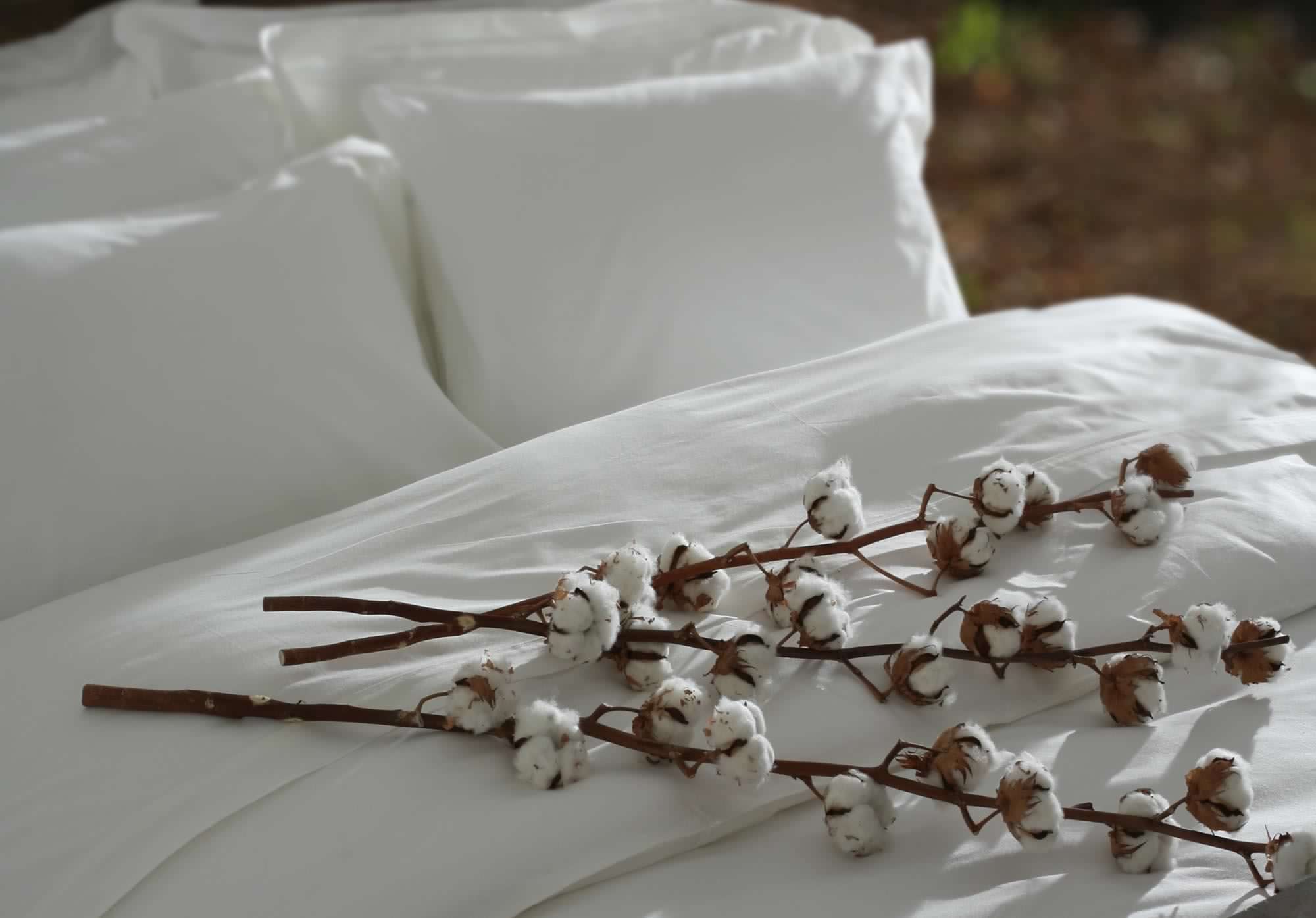(DrFrankLipman – Mia James) If you eat a mostly organic diet and increasingly use organic skincare and cleaning products, it probably feels like a logical next step to buy organic clothing. But because of the higher prices and limited availability of organic garments, you may wonder if it’s worth it—what’s the real risk of clothing produced the conventional way? Let’s take a look at what “organic” means when it comes to fashion.
Are There Chemicals In Your Shirt?
If you pull on an article of clothing, let’s say a 100% cotton, blue T-shirt with some kind of print on it, are there chemicals lurking in the fabric? Unfortunately, yes, although they might not be what you’d think. Rather than coming from the cotton itself, most of the toxins in the T-shirt come from what happens long after the pesticides have been sprayed on the crops. Ever wonder what the “new” smell is on clothing, a smell that sometimes even sticks around after a washing? Your favorite shirt might contain one or more of the following chemicals:
- Azo dyes. These synthetic colorants may release carcinogenic amines (ammonia derivatives), and have been recognized as human bladder carcinogens. Azo dyes are also environmental pollutants.
- Formaldehyde. This known carcinogen is used prevent clothing from wrinkling. Many popular brands of baby clothes are shown to contain formaldehyde in concentrations as high as 18,000 ppm (parts per million). Supposedly, exposure up to 20 ppm is safe for babies, but I’d rather have zero, thank you!
- Nonylphenol ethoxylates. These cheap, hormone-disrupting surfactants are sometimes used by the textile industry, and wind up in our water supply when we launder clothing that contains them.
- Perfluorochemicals. PFCs work beautifully to repel water and stains, but they also break down into a toxic blood contaminant that’s linked with tumor growth and reproductive problems. PFCs are found in wrinkle-, stain-, and water-resistant clothing items, including those with Scotchgard and Gore-Tex tags.
- Phthalates. Yes, these notorious hormone-disruptors are even in our clothing, often found in either in the dyes or in plastisol prints.
What About Pesticides?
Organic growing methods mean a lot to the environment, as well as to all the hands that actually work among the plants. Cotton that is not grown organically is treated with pesticides, herbicides, and chemical fertilizers. Harvesting organic cotton is much safer for the workers who pick it, and those living near cotton crops won’t have pesticides in their water sources.
But in terms of the person wearing the clothing? The toxins used to farm the fiber are almost certainly washed out in the processing of the fiber, so you’re unlikely to get much pesticide exposure by wearing those clothes. I still tell my clients to wash clothing before their kids wear it, because young children are especially vulnerable to the harmful effects of pesticides.
What the “Organic” Label on Clothing Means
Frankly, seeing an “organic” tag on clothing used to be all but meaningless, since manufacturers could take organically grown cotton and treat it with all of the chemicals listed above before selling it. Starting in 2011, however, clothing labeled as organic must be certified by the National Organic Program. In particular, you should look for clothing that is certified by GOTS (Global Organic Textile Standard)–this means that the fibers are organic, and also that the garment contains no toxic finishes, dyes, chlorine, or formaldehyde, among other restrictions. The GOTS certification also ensures that the clothing you’re purchasing didn’t employ child labor, and all workers were paid a living wage.
The Bottom Line on Organic Clothes
Although pesticide exposure from your T-shirt is probably negligible, there are a host of other noxious chemicals used in the clothing manufacturing process, many of which remain even after repeated washings. Look for GOTS-certified clothing to ensure your purchases are safe for the environment, the workers who made the garment, and the person wearing it. For recommended brands of organic baby clothes, check out this Safe Baby Clothing Guide.
